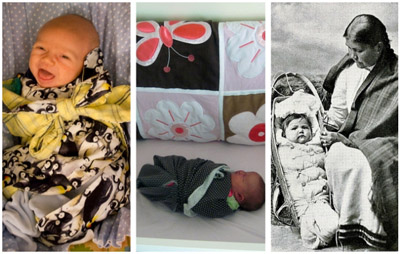Expatica Article: experience with diverse people from all over the world
December 2016;
Dr. Victor Kouratovsky, a certified clinical specialist, discusses his experience with diverse people from all over the world with varying backgrounds, upbringing, culture, and personal histories in different countries.
In my understanding of the importance of culture, cultural background, and the effects of a migration from a mental health perspective, I coined a way of thinking I have called ‘envelopment’. Envelopment provides a buffer and protection against stress by creating patterns and rituals, with proven effects on biological and (sub)conscious levels. When adequate, envelopment enables adjustment, health and growth through care of the family and of the self. A change of setting, however, stressful by itself, can leave one unprotected. I use swaddling, an millennia-old custom in all parts of the world, as a metaphor for envelopment.
Example of swaddling:

Being born is probably the biggest change of environment and the most significant ‘migration’ of our lives. In the womb, we are already influenced by culture, not only by the speech we hear from our mother and father, but also by the way our mother is treated, her experiences, and even the experiences of our grandparents. But after being born, all kinds of different cultural environments and practices help us to protect against overwhelming situations and stress. Swaddling can be understood as one way of envelopment by providing holding and support after leaving the womb, and as a metaphor for dealing with new stressors encountered in life.
Why special care for expats?
Expats are, generally speaking, strong and resilient people, but we all have our vulnerabilities.
Life as an expatriate means adjusting to a whole new set of different circumstances, starting with different sounds, smells, tastes, and ways of being. Making adjustments requires energy, while family and life events, coupled with living and work conditions, might make life difficult.
In cases where life’s predicaments lead to imbalances and to lesser mental and physical functioning, having quick and direct access to a specialist and expert might prove very cost effective and welcome for oneself as well as for one’s family. Expat failure is a costly affair for all parties concerned. and something one really wishes to avoid.
Without contracts with third parties like insurance companies and municipalities, ExpatPsy is free to offer consultation concerning adjustment issues and preventative issues, all without branding persons as ‘disordered’. Adapted to the needs of expats, ExpatPsy can be consulted outside office hours. ExpatPsy also makes use of an international network of specialists.
Read original Expatica website article here >>
